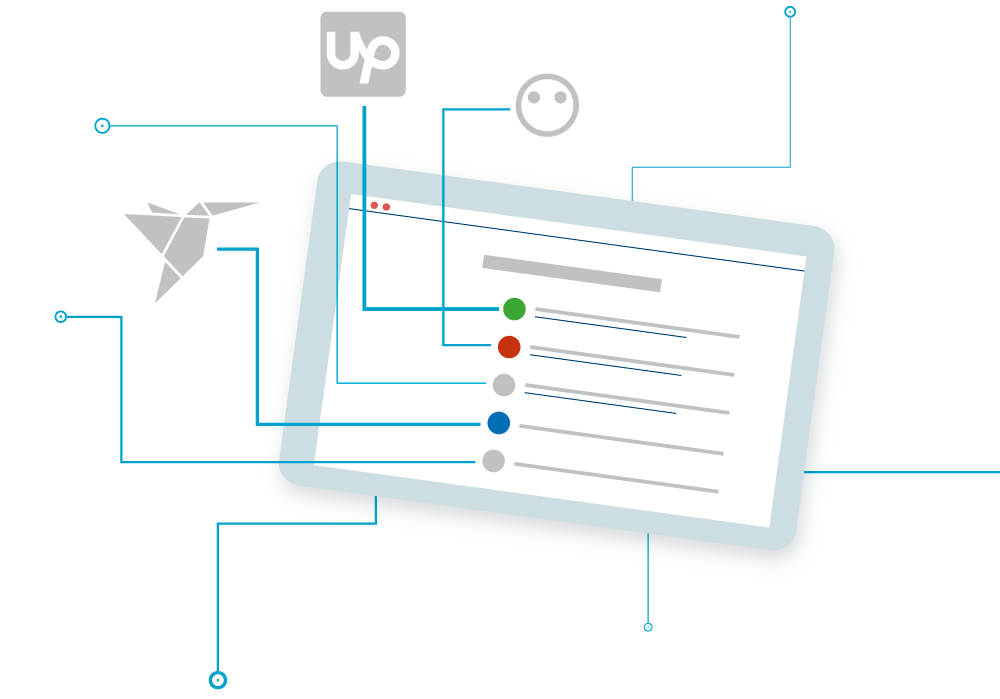Client interviews: a self-employed’s guide to fruitful negotiations


Sandra Arevalo
Founder & CEO
Your profile shines, you were agile finding that project recently posted and were among the firsts to send an awesome proposal to call the client’s attention. Now you have an interview invite and all the hopes to get to the next stage: the contract.
Besides being the opportunity for the client to verify your skill set and fit for the project, client interviews are also your opportunity to clarify any questions you may have about the project before confirming you’re really interested in it.
Here some tips to be at your most before, during and after that important call:
Before client interviews
Did I mention there is never too much preparation? Here some ideas to make yourself ready (and align that busy mind with the nearest goal):
Review the project details and retrieve your proposal to keep in mind all the details.
Prepare a list of questions to help you fully understand the project.
Define the key aspects and limits of your negotiation (i.e. rate, availability, payment terms, etc).
Prepare your elevator pitch: What do you want the customer to know about you in the first 30 seconds of the conversation?
10 minutes before the call: choose a quiet and well-lit place, try your internet connection, sound and video quality.
During client interviews
Start with a friendly greeting, smile and let the client introduce himself. After that you can introduce yourself briefly – this is where your elevator pitch comes into play.
Throughout the interview, listen carefully, take notes and ask questions until you feel that you understand the project in sufficient detail. Remember smart questions are a good way to demonstrate your expertise. Verify the items on your checklist during the call and make sure you don’t leave critical aspects before finishing the call.
With practice, you’ll be able to determine in the first contact whether a collaboration agreement seems possible. Nonetheless, the process could require multiple meetings (and most probably you’ll be on the same process with multiple clients at the same time). Take good notes of the key elements shared, the intermediate agreements reached, open actions, and deadlines.
Key elements to keep in mind
- You don’t have to agree to everything the customer asks of you.
- Show assuredness, composure and remember that you have bargaining power.
- A customer is not your boss, they are a customer and you are their supplier.
- Sign a contract only after fully understanding all the terms well.
- Familiarize yourself with the hiring language (NDA, IP Agreement, etc.).
- Don’t sign anything without reading everything fully!
After client interviews
At the end of the meetings, the two likely outcomes are:
An agreement is reached and you decide to continue.
There is no agreement and you decide to end the negotiation.
Ending a negotiation without reaching an agreement does not mean losing. Sometimes the information the client shares with you will change your perception and interest in the project.
It’s better to withdraw earlier from a potentially bad deal outside of your limits.
The search is over!
Get multi-platform freelance job offers directly in your email

Whether an agreement is reached or not, it is very important that communication is always friendly and closes on good terms. Keep in mind that this may be a customer in the future.
When negotiations with the client have finished, document the agreements including all known details of the project and the agreed conditions and share them with the client. On top of being a way to confirm that you both are at the same level of understanding of the agreement, this will be your clarification tool during future meetings.
Once the customer process a formal contract proposal in your freelancing platform of choice, review the terms versus your documented details and make sure every detail reflects the agreements reached.
Find more practical tips for negotiating when you are a freelancer in Harvard Business Review.
Was this post useful for you?
Share your thoughts and engage with like-minded independent workers.

